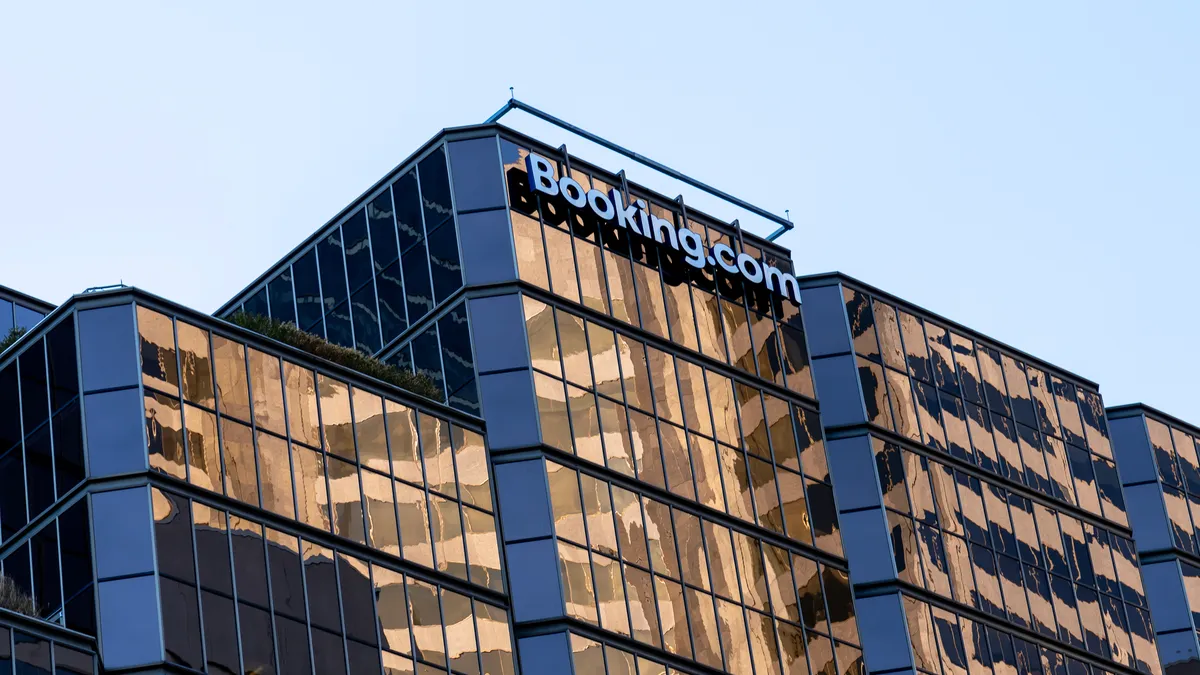Dive Brief:
- Booking.com can no longer include price parity clauses in the contracts it enters into with hotels across the European Union, the EU’s top court, the Court of Justice, ruled September 19.
- The decision’s immediate impact is limited to Booking.com, but it could lead to pressure on the use of the clauses by other travel sites as well as in other industries. Price parity “is not specific only to the lodging sector,” researchers representing a mix of European academic institutions say in a paper released earlier this year.
- A report from technology trade publication WebProNews says the decision is likely to shine a spotlight on how the clauses are used in other industries. “The decision may … encourage other European regulators to take a harder stance on similar practices in different sectors of the digital economy,” the report says. “It could prompt investigations into other industries where large platforms impose restrictive clauses on suppliers, from e-commerce to digital services.”
Dive Insight:
Price parity clauses in the travel sector restrict hotels from offering rooms on their own websites at rates lower than what they’re offered on an online platform like Booking.com. Depending on how they’re written, they can also restrict the price at which hotels offer their rooms on other online platforms.
The clauses are intended to curb free-riding, known in the online shopping sector as showrooming, in which consumers use an online platform to shop for something, in this case a hotel, and then book the room for a lower amount on either the hotel’s website or another platform.
Since 2015, when EU agencies initiated a series of investigations into the practice, most online travel platforms limit their price parity restrictions to so-called narrow clauses, which limit restrictions to just what the hotel charges on its own website; the biggest impact of the investigations was to so-called wide clauses, which restrict prices on both the hotel’s website and other third-party sites. These types of restrictions have become far less common.
In its ruling, the EU court says Booking.com’s practice is hindering competition and potentially damaging the market for new and smaller players. Nor is it clear the restriction is even needed for the site to protect itself.
“It has not been established that price parity clauses, whether wide or narrow, first, are objectively necessary for the implementation of that main operation and, second, are proportionate to the objective pursued by it,” the court said.
Wide clauses pose the biggest risk to new and smaller online platforms, but narrow clauses do so as well, the court said.
“Although [narrow clauses] give rise, prima facie, to a less restrictive effect on competition and are intended to address the risk of free-riding, they do not appear to be objectively necessary to ensure the economic viability of the hotel reservation platform,” the court said.
In their study from earlier this year, the European researchers took advantage of what’s known as the Macron Law, a law enacted in France in 2015 that imposed a sweeping prohibition on price parity clauses. By conducting a before-and-after analysis of prices travelers paid for hotel rooms, the researchers concluded the clauses had little impact on what hotels or third-party sites charged for rooms compared to what online platforms like Booking.com charged.
“The results indicate that the prohibition of PPCs had no significant effects on room prices on [online travel agency] or hotel websites — two online channels where price information is ‘visible’ to everyone,” the researchers said.
The one change they saw was to transactions made through non-visible channels — that is, reservations booked over the phone, in person or by email. Consumers tended to book rooms through these types of transactions slightly more — about 4.5% more — and the price they paid when they did so was less, 8.5 euros less on average, after the clauses were banned.
“The absence of PPCs should enhance competition between sales channels, leading to lower commission rates that are passed through to prices,” the researchers say.
Even without the decision, Booking.com’s price party practices are newly subject to restrictions. In June, the EU named the company a gatekeeper under its Digital Markets Act. That law took effect in 2023. Online platforms designated as gatekeepers are subject to heightened anti-competition curbs because of the way other companies rely on them to do business. The EU says Booking.com is a gatekeeper because of the intermediation role it plays for many other businesses in the travel sector. One of the restrictions it faces as a designated gatekeeper is its ability to use price parity clauses.
“Booking will need to adhere to a ban on parity clauses,” a Tech Policy Press report said in June after the company was named. “Booking has a price parity clause stating that hotels cannot offer better prices or deals on other distribution channels that they control, including their own websites. Booking will need to amend this policy in the EU, allowing hotels to offer better prices elsewhere.”
In an emailed statement to Legal Dive, a Booking.com spokesperson said the company is disappointed in the decision.
“Though we are still analyzing the full content of the judgment, we maintain that parity clauses that historically existed in Germany were necessary and proportionate to the relationship between accommodation partners and Booking.com and that Booking.com operates in a competitive market,” the spokesperson said. “The Amsterdam court will now have to apply this judgment to the facts of the case.”











